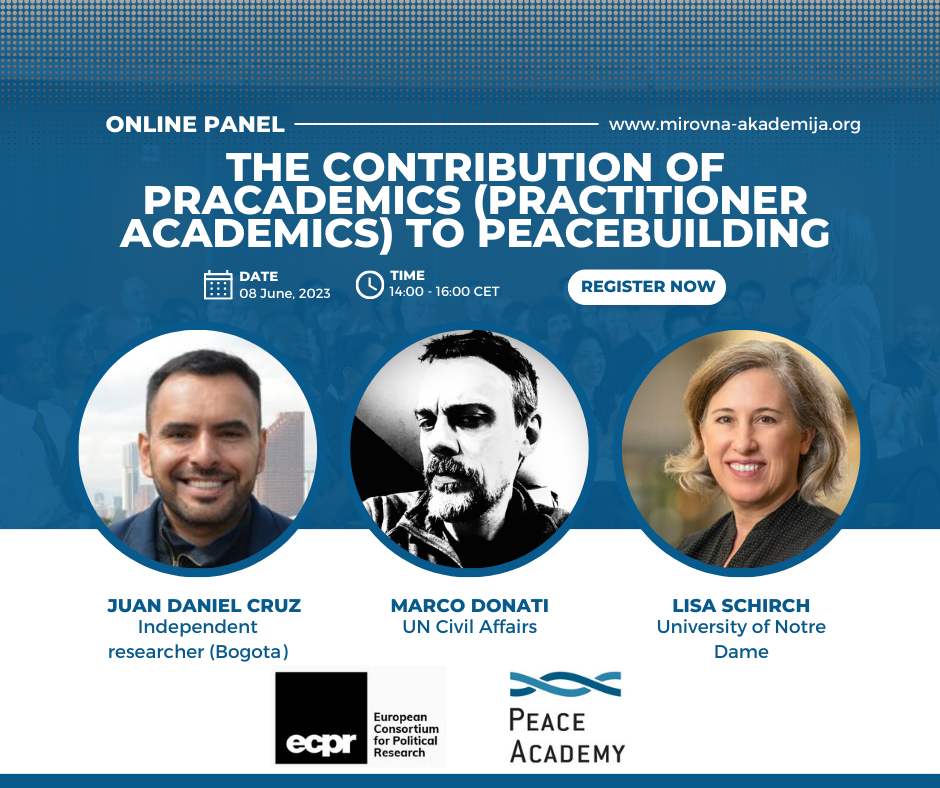Juan Daniel Cruz, before beginning his career as a teacher and writer on peace and decolonization, was immersed for more than eight years with communities and peace initiatives in conflict zones in Colombia and the border areas with Ecuador and Venezuela. The contact with creativity and ancestry of marginalized communities to resist or mediate peacefully with armed groups and political elites made Juan Cruz recognize other ways to co-create peace, motivating him to study Latin American critical and decolonial approaches, which he has applied in his undergraduate, master's and Ph.D. studies, also in his classes and multiple publications.
Marco Donati has worked with UN civil affairs for more than 20 years and is the Civil Affairs Team Lead in New York. During this time he worked as a UN Civil Affairs Officer in Haiti, the DRC and Kosovo.
Lisa Schirch has 30 years of experience in peacebuilding research, policy advocacy, practice, and teaching. A political scientist by training, she earned her PhD in 1989 from George Mason University’s Carter Center for Peace and Conflict Resolution. Schirch’s most recent book, Social Media Impacts on Conflict and Democracy: The Tech-tonic Shift (Routledge, 2021) features thirteen local case studies from Asia, Africa, the Middle East, and Latin America. The book maps how digital technologies drive “social climate change,” including polarization, extremist anti-immigrant, and anti-minority purity narratives. Schirch’s current research focuses on the positive roles of technology in “peacetech” and “digital peacebuilding.” She is a senior research fellow with the Toda Peace Institute, where she coordinates with civil society and technology companies to experiment and innovate new technologies that can scale social cohesion.


